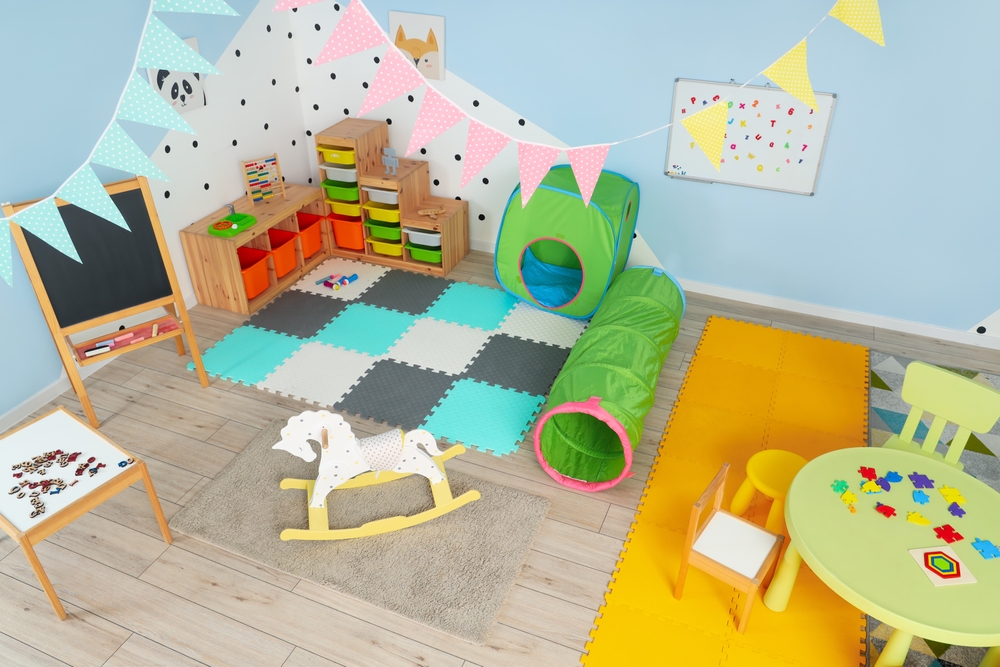How Childcare Centres Can Support Early Childhood Development

The early years of a child's life are critical for their overall development, and quality childcare centres play a key role in fostering this growth. During these formative years, children undergo rapid cognitive, emotional, and social changes that lay the foundation for lifelong learning and well-being. By providing a stimulating and nurturing environment, childcare centres actively support children’s early development through structured play, learning activities, and social interactions. In this article, we’ll explore how these centres help nurture the holistic development of young children.

Cognitive Development: Nurturing Young Minds
Cognitive development refers to the mental processes that allow children to think, learn, and problem-solve. In their early years, children are like sponges, constantly absorbing new information from the world around them. Quality childcare centres understand this and design activities that stimulate children’s intellectual growth while encouraging exploration and curiosity.
Structured Play
One of the primary ways childcare centres support cognitive development is through play. Play is far from mere entertainment for children; it is an essential aspect of learning. Childcare centres carefully structure playtime to include activities that promote problem-solving, critical thinking, and memory development. For example, building blocks and puzzles allow children to experiment with cause-and-effect relationships, develop spatial awareness, and exercise logical thinking.These play-based activities are designed to help children make sense of the world in a hands-on, tangible way. Whether it’s creating a structure from building blocks or role-playing different scenarios, structured play helps children learn important cognitive skills while having fun. Moreover, it offers opportunities for children to practice decision-making and experiment with new ideas in a safe and supportive environment.
Learning through Discovery
Children are naturally curious, and childcare centres encourage this curiosity by providing opportunities for discovery-based learning. Whether it's exploring nature in the outdoor play area or engaging in science experiments indoors, these experiences help children develop a sense of wonder about the world around them.Educators often design discovery-based activities that challenge children to think critically and ask questions. These activities might include observing insects in the garden, planting seeds, or experimenting with water and sand. Such experiences allow children to draw connections between what they see and learn in the classroom and what exists in the real world. Through these explorations, they begin to develop foundational knowledge in subjects like science, mathematics, and the natural world.
Creative Arts and Expression
Cognitive development is also fostered through creative activities. Childcare centres frequently incorporate arts and crafts into their curriculum to stimulate a child’s imagination and encourage self-expression. Activities like painting, drawing, and crafting provide children with opportunities to experiment with colours, shapes, and materials, developing their fine motor skills while also engaging their cognitive abilities.Creative arts allow children to process their emotions and thoughts visually. It’s not just about making pretty pictures; it’s about giving children the tools to communicate their ideas and develop problem-solving skills. The freedom to create encourages children to think outside the box and fosters an environment where they feel comfortable exploring new concepts.
Emotional Development: Fostering Self-Confidence and Resilience
Emotional development is a key aspect of early childhood and involves helping children understand, manage, and express their emotions. A strong emotional foundation is essential for building resilience, self-esteem, and empathy. Childcare centres play a vital role in nurturing emotional development by creating safe, supportive environments where children can express their feelings and learn to regulate them.
Emotionally Supportive Environments
One of the ways childcare centres support emotional development is by fostering emotionally supportive environments where children feel valued and secure. Educators use positive reinforcement and encouragement to build children’s confidence. By providing a space where children feel heard and understood, they create a nurturing atmosphere that helps children develop self-esteem and emotional resilience.A consistent routine is also crucial for emotional stability in young children. Predictable daily schedules, where children know what to expect, provide a sense of security that reduces anxiety and emotional distress. When children feel safe and secure in their surroundings, they are more likely to explore, learn, and build meaningful relationships with their peers.
Developing Empathy through Social Interaction
Childcare centres are often a child’s first experience of being in a social setting with peers, outside of the family. This is where children begin to learn empathy and develop emotional intelligence. Group activities such as role-playing, storytelling, and collaborative games teach children how to recognise and respond to others’ emotions, fostering empathy and compassion.Educators guide children through conflicts and help them understand different perspectives, which is essential for developing social and emotional maturity. For example, when a child takes turns or shares a toy with a peer, they are learning valuable lessons in patience, cooperation, and empathy. These experiences contribute significantly to a child’s emotional growth and ability to form healthy relationships.
Handling Big Emotions
Young children often experience strong emotions but may not yet have the tools to manage them. Childcare centres help children navigate these emotions by teaching self-regulation techniques. Educators model appropriate ways to deal with frustration, anger, or sadness and encourage children to express their feelings verbally rather than through negative behaviours like tantrums or hitting.Through calm guidance, children learn that it’s okay to feel upset, but there are healthy ways to manage these emotions. For example, mindfulness activities such as deep breathing or quiet time can help children learn to calm themselves. Over time, these coping strategies become tools they can use to manage their emotions independently, building resilience and emotional intelligence.
Social Development: Building Connections and Communication Skills
Social development is another key area of focus for childcare centres. Learning to interact with peers, communicate effectively, and form friendships are all essential components of a child’s social growth. In a childcare setting, children are regularly exposed to group dynamics, which helps them develop the social skills they will need throughout their lives.
Collaborative Play and Teamwork
Group activities like building projects, outdoor games, or pretend play offer opportunities for children to engage in collaborative play. During these activities, children learn to work together, share, negotiate, and resolve conflicts. These experiences teach them the importance of teamwork and help them develop communication and problem-solving skills in a social context.Collaborative play is particularly effective in teaching children how to take turns, listen to others, and express their own ideas clearly. These are vital skills that will not only help them in the classroom but also in their future social interactions. Additionally, being part of a group activity allows children to experience a sense of belonging, boosting their self-esteem and encouraging positive social behaviours.
Language Development
Communication skills are an important part of social development, and childcare centres actively support language growth through activities like storytelling, singing, and conversational games. Educators encourage children to express themselves verbally, expanding their vocabulary and teaching them how to articulate their thoughts and emotions clearly.Language development is not only about learning new words but also about understanding how to use language in different social situations. For example, children learn how to greet others, ask for help, or resolve disagreements using appropriate language. These skills help children navigate social interactions more effectively, building their confidence in social settings.
Diverse Social Experiences
Childcare centres often have children from a range of cultural and socio-economic backgrounds. This diversity provides children with the opportunity to learn about and appreciate different perspectives, teaching them tolerance and adaptability. Exposure to different cultures and ways of life helps children develop a broader understanding of the world, making them more socially aware and inclusive.By engaging in diverse social experiences, children learn how to respect differences and build relationships with a wide variety of people. These early experiences of inclusion and diversity lay the groundwork for strong social skills that will serve them well throughout their lives.
Conclusion: Childcare Centres as Essential Partners in Early Childhood Development
Childcare centres provide more than just a place for children to stay while their parents are at work. They are critical partners in supporting early childhood development by creating environments that nurture cognitive, emotional, and social growth. Through structured play, discovery-based learning, creative expression, and social interactions, childcare centres help children build the foundational skills they need for future success.
As children navigate these crucial early years, the support they receive from their educators can make all the difference. Whether it’s encouraging curiosity through hands-on learning, teaching children how to manage their emotions, or helping them develop social skills, childcare centres are instrumental in shaping the future of young minds. Parents can feel confident knowing that their children are in a setting designed to foster growth, learning, and well-being in every aspect of their development.
Post Your Ad Here